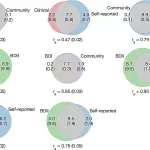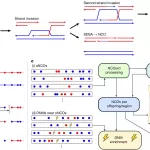A new study published in the open-access journal PLOS ONE sheds light on how fear and joy influence decision-making processes differently between men and women. Conducted by researchers from the University of Padua, Italy, the study suggests that fear may affect women’s decisions in choosing immediate rewards versus larger delayed ones, while men’s decisions appear unaffected by emotion.
Decision-making is a complex process, especially when weighing short-term benefits against long-term gains. The phenomenon known as “delay discounting” describes the tendency to prefer immediate rewards over larger rewards in the future, even if the future reward is significantly greater. To investigate how emotions and gender impact decision-making in these scenarios, the researchers conducted a study involving 308 participants recruited via a social media survey.
Participants were shown movie clips intended to induce different emotional states: fear, joy, or neutral affect. Afterward, they were asked hypothetical reward questions, such as choosing between receiving €20,000 today or €40,000 after three years. The results revealed intriguing gender differences.
Women who watched the fear-inducing movie clip were more likely to exhibit delay discounting, choosing the immediate, smaller reward, compared to men who watched the same clip or women in the joy or neutral movie groups. However, there were no significant gender differences in decision-making across the joy or neutral movie groups, and men’s decisions remained unaffected by their emotional state.
These findings suggest that fear, in particular, may provoke different types of time-bound decision-making for women compared to men. The researchers speculate that these differences could be attributed to evolutionary strategies around safety versus risk or variations in emotion-regulation approaches during stressful situations.
While the study’s sample size and range of emotions studied were limited, the findings highlight the importance of considering gender as a significant factor in the interaction between emotions and decision-making processes. Further research is warranted to explore these dynamics in more depth and understand their implications fully.
The authors emphasize that their research underscores the complexity of decision-making processes and the need to consider individual differences, particularly regarding gender and emotional states, when studying human behavior.











